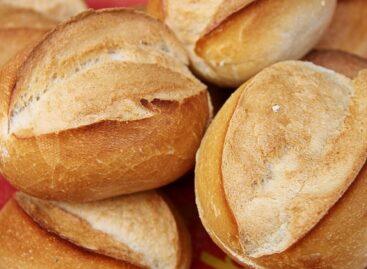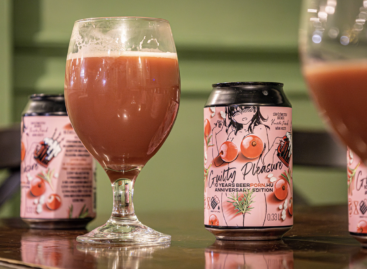Magazine: New bread!
What’s new in the bread market?
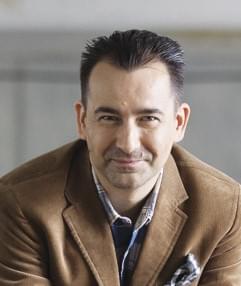
Sándor Kasza
managing director
Granet Group
According to Sándor Kasza, managing director of Granet Group Kft., a growing number of wholemeal products are available on store shelves, indicating the popularity of the health trend. Organic, gluten-free and vegan breads are more expensive than ordinary ones. Both the dynamics and the volume of sales make bakers satisfied. As regards so-called ‘modern’ products, in 3-4 years’ time a two-digit sales growth is possible.
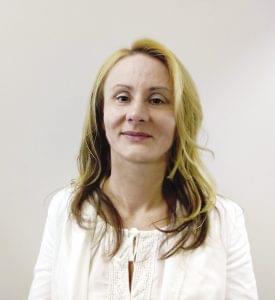
Rita Novák
marketing manager
Ceres
Rita Novák, marketing manager of Ceres Zrt. revealed that bread sales had dropped recently. Traditional white and semi-brown breads still realise 80 percent of sales.
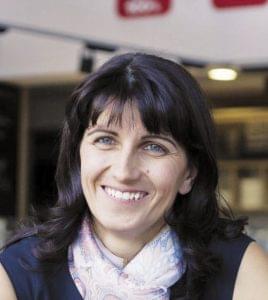
Klára Ludwig
managing director
Jókenyér
We learned from Klára Ludwig, managing director of Jókenyér that the proportion of breads satisfying special needs is growing, and this trend is likely to continue in the years to come.
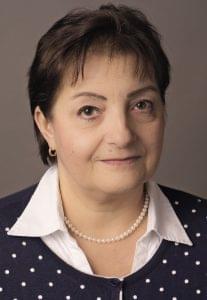
Rita Habuda-Salyámosy
marketing manager
Glatz Hungary
Rita Habuda-Salyámosy, marketing manager of Glatz Hungary Kft. informed: their Finnish, Swedish and German crispbreads stay fresh for a long time and are healthy too. These are usually wholemeal products, made with oilseeds, low sugar content and are often lactose-free.
Mr Kasza revealed that ad-hoc buyers have appeared in the market of healthy baked goods – more than half of purchases are now like this. These consumers don’t switch to buying these products only, but do so from time to time. Ms Novák told that those shoppers who must buy these special breads because of health reasons tend to pick from cheaper products. Those who decide to start eating healthy baked goods themselves are likely to purchase higher-priced baked goods too. Ms Ludwig talked to Trade magazin about how price-sensitive Hungarian shoppers are in these segments. Ms Habuda-Salyámosy added that the price of baked goods correlates with the cost of ingredients and production technology used, e.g. Brandt rusks have to be baked for 15 hours if they are lactose- or added sugar free, so the production costs are higher than with rusks made the traditional way.
Mr Kasza’s experience is that baking companies are investing in technology for manufacturing special, for instance free-from products. Ms Novák informed that Ceres Zrt. is also innovating in the product categories that target health-conscious consumers, e.g. wholemeal, rye and E-free baked goods. Ms Ludwig explained that those baked goods qualify as modern which are made from fresh whole wheat flour, rye flour and those made with various nuts.
Ms Habuda-Salyámosy told that some crispbreads are also made with pumpkin and sunflower seeds, while others contain no added sugar and are characterised by high fibre content. There is now even a snack product in the Finn Crisp brand’s portfolio! Mr Kasza shed light on the fact that innovation work never stops. Their most successful product is gluten- and allergen-free mini rolls with sunflower seeds and chives. Ms Ludwig stressed that the best way to innovate is with consumer needs in mind. From their products 100-percent wholemeal baked goods have been the most popular recently (this has to do with the fact that the company has its own mill).
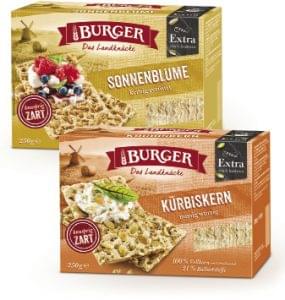
Sponsored illustration
Mr Kasza told Trade magazine: they have an excellent relationship with hotels. Many of Granet Group Kft.’s products aren’t available in shops but are used by chefs. The company prefers using carefully selected, high-quality Hungarian ingredients. Ms Ludwig told us that they don’t really work together directly with gastronomy partners, but sales of their bakeries to hospitality buyers are growing. //
Related news
Blue Planet: Ancient grains have more favorable physiological and environmental effects than industrially grown wheat
🎧 Hallgasd a cikket: Lejátszás Szünet Folytatás Leállítás Nyelv: Auto…
Read more >Bread must arrive even at minus 15 degrees – Hungarian carriers defy the elements
🎧 Hallgasd a cikket: Lejátszás Szünet Folytatás Leállítás Nyelv: Auto…
Read more >Related news
Hungarian beer magazine celebrates with rosé beer
🎧 Hallgasd a cikket: Lejátszás Szünet Folytatás Leállítás Nyelv: Auto…
Read more >(HU) Tortadíszítés-egyetem – A nap videója
🎧 Hallgasd a cikket: Lejátszás Szünet Folytatás Leállítás Nyelv: Auto…
Read more >(HU) Sajtburgermániások, ha mást esznek – A nap képe
🎧 Hallgasd a cikket: Lejátszás Szünet Folytatás Leállítás Nyelv: Auto…
Read more >


